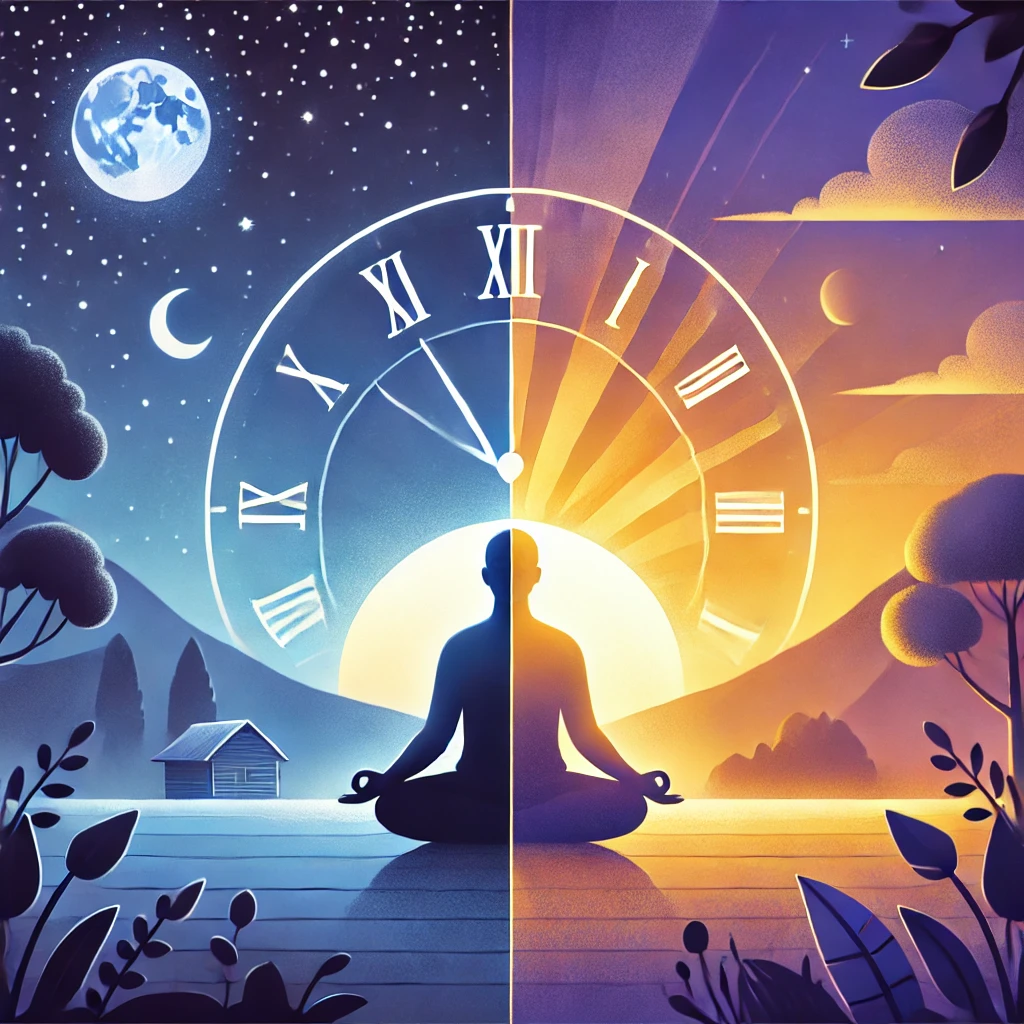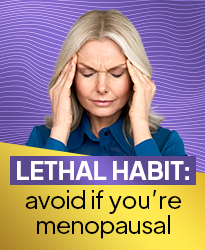How to Reset Your Circadian Rhythm After Travel
Ah, travel—the glamorous art of squeezing yourself into an economy seat that’s roughly the size of a shoebox, inhaling recycled air that smells vaguely of mystery and regret, and engaging in deep philosophical debates with yourself about why you thought booking a red-eye flight was a stroke of genius. Was it the thrill of saving $50? The misguided optimism that you’d “just sleep on the plane”? Or perhaps the romantic notion that you’d arrive looking effortlessly chic, instead of resembling a crumpled laundry pile with passport stamps. While globetrotting is fantastic for your Instagram feed, your questionable souvenir collection (because who doesn’t need a miniature Eiffel Tower and a keychain shaped like a llama?), and your ability to humblebrag in casual conversations, it tends to wreak absolute havoc on one critical part of your well-being: your circadian rhythm. Yes, that delicate internal clock that thrives on routine, predictability, and not being hurled across multiple time zones like an unsuspecting tourist in a jet-fueled catapult. But fear not, weary traveler! Whether you’ve crossed three time zones or twelve, this guide will teach you exactly how to reset your circadian rhythm after travel, armed with practical tips, science-backed strategies, and a generous side of humor to help you laugh through the jet lag, the questionable airplane meals, and that existential crisis you had somewhere over the Atlantic.
What Is Your Circadian Rhythm Anyway?
Before we dive into the tips and tricks, let’s put on our metaphorical lab coats and get a little nerdy for a moment. Think of your circadian rhythm as your body’s personal timekeeper—kind of like a meticulous, slightly overbearing assistant who’s obsessed with schedules. It’s the internal clock that tells you when to sleep, when to wake up, and when it’s socially acceptable to demand coffee without alarming your coworkers. This rhythm isn’t just winging it, though. It’s governed by a tiny but mighty part of your brain called the suprachiasmatic nucleus (and no, that’s not a spell from Harry Potter, although it does sound like something Hermione would ace on an exam). Nestled in the hypothalamus, this cluster of about 20,000 neurons acts like the conductor of your body’s symphony, keeping everything in sync—from your sleep-wake cycle to hormone production and even body temperature.
Now, here’s where things get interesting (and mildly chaotic). Your circadian rhythm is heavily influenced by external cues, especially light and darkness, along with your daily habits like meal times, exercise, and whether you’ve decided to binge-watch an entire season of a show at 2 a.m. When you hop across time zones faster than a caffeinated kangaroo—yes, imagine that visual for a second—your poor circadian rhythm gets completely disoriented. It’s like showing up to a party eight hours early and wondering why no one else is there. The result? Classic jet lag symptoms: grogginess, brain fog, mood swings, and the delightful experience of having an existential crisis at 3 a.m., questioning not just your life choices but also why hotel alarm clocks are always set to the most aggressive volume known to humanity.
Why Reset Your Circadian Rhythm After Travel?
If you’re thinking, “Why bother? I’ll just ride it out,” let me stop you right there—preferably with a dramatic, slow-motion hand gesture for emphasis. Jet lag isn’t just about feeling a little sleepy at inconvenient times, like dozing off mid-sentence or mysteriously waking up at 2 a.m. wondering if it’s breakfast time or the apocalypse. No, it’s far sneakier and more disruptive than that. Jet lag can throw a full-blown tantrum in your body, affecting not just your sleep but also your mood, digestion, concentration, and even your immune system. That’s right—while you’re busy battling the urge to nap in public, your immune system might be quietly sulking in the background, making you more susceptible to every germ that dares cross your path, from airplane coughs to questionable street food adventures.
And let’s be honest, the consequences aren’t exactly glamorous. Falling asleep during an important business meeting, especially if you start snoring softly—or worse, drooling—isn’t going to land you that promotion. Face-planting into your perfectly Instagrammable gelato in Rome? Not exactly the cultural experience you had in mind. Imagine traveling all the way to the Colosseum, only to stare at it through half-closed eyes, wondering if it’s socially acceptable to nap on ancient stone steps. Not ideal.
Learning how to reset your circadian rhythm after travel isn’t just some overly cautious health tip; it’s the key to reclaiming your trip—or your return home—without resembling a sleep-deprived zombie who’s one yawn away from a full existential meltdown. Whether you’re trying to enjoy sunsets in Santorini, impress colleagues in Tokyo, or simply remember your own name after a long-haul flight, mastering the art of circadian rhythm recovery ensures you can fully savor your experiences without sleep deprivation photobombing every moment.
The Science Behind Jet Lag (Or Why You Feel Like a Disoriented Llama)
Jet lag occurs when your internal clock—also known as your circadian rhythm—decides to ignore your travel itinerary and stubbornly sticks to its original time zone. Imagine your body confidently insisting it’s midnight, demanding cozy pajamas and a blackout curtain, while the local environment has the audacity to disagree. The sun is shining in full, blinding glory, people are out jogging on purpose (without being chased, mind you), street vendors are bustling, and you’re expected to be a fully functioning human being instead of a bewildered, sleep-deprived zombie. It’s as if your brain and the world around you are operating in completely different time zones—because, well, they are. This internal confusion affects more than just your sleep; it throws your entire system into disarray. Your sleep-wake cycle gets scrambled, hormone production (like melatonin and cortisol) is out of whack, and even your body temperature—usually a reliable constant—starts behaving like it’s auditioning for a role in a sci-fi movie.
The further you travel, especially when crossing multiple time zones, the worse it tends to get. Traveling eastward? Buckle up, because that’s where jet lag really flexes its muscles. Why? Because your body naturally prefers to lengthen its day rather than shorten it. Adjusting to a longer day is like getting an unexpected bonus hour to procrastinate—it’s oddly manageable. But shortening the day? That’s where things get tricky. It’s like trying to convince a toddler to take a nap when they’re clearly not ready. Sure, it’s technically possible, but it comes with a lot of resistance, dramatic meltdowns (sometimes from both the toddler and you), and the occasional existential crisis about life’s deeper meaning. Your body protests the sudden demand to feel sleepy earlier than usual because its internal clock doesn’t respond well to being rushed. It needs time, gentle nudges, and maybe a bit of bribery in the form of strategic light exposure, just like that stubborn toddler who might finally agree to nap after being promised a snack.
Join Our Mailing List
Register now to get our hints and tips newsletter directly to your inbox
How to Reset Your Circadian Rhythm After Travel
1. Embrace the Light (But Not Like a Moth)
Light is the MVP when it comes to resetting your circadian rhythm after travel. Think of it as nature’s way of giving your brain a gentle nudge—or, depending on the brightness, a full-on shove—telling it when to wake up and when to wind down. Exposure to natural light helps signal your brain’s master clock (the suprachiasmatic nucleus, for all the nerds out there) that it’s time to be alert and functional, even if your body is screaming otherwise.
If you’ve traveled west, bask in the glory of morning sunlight. Go for a walk, sip your coffee outside, or dramatically pretend you’re in a movie montage—it all helps shift your internal clock earlier. If you’ve ventured east, afternoon sunlight becomes your best friend. This delays your body’s sleep signals, helping you stay awake until it’s an appropriate local bedtime.
But a quick safety PSA: do not stare directly at the sun. We’re trying to boost your health, not host an impromptu experiment in retinal damage. Instead, let natural light hit your eyes indirectly while outdoors. If sunlight is scarce (thanks, winter), consider using a light therapy box. Just resist the urge to flap around it like an overzealous moth.
2. Strategic Napping: The Goldilocks Principle
When it comes to naps, channel your inner Goldilocks—not too long, not too short, but just right. The sweet spot? Around 20 to 30 minutes. This short power nap is enough to boost your alertness and mood without dragging you into the deep sleep cycle, which can leave you groggier than a bear waking up from hibernation.
Why not nap longer? Because that’s when things get tricky. A nap that creeps past 30 minutes risks plunging you into the murky waters of sleep inertia—a fancy term for that “I have no idea what year it is” feeling. Instead of feeling refreshed, you’ll wake up disoriented, cranky, and questioning life’s choices, like why you thought eating airport sushi was a good idea.
The goal here isn’t to nap your way through jet lag. It’s to strategically use naps to stay awake during the day without sabotaging your nighttime sleep. Think of it like snacking before dinner: a little is fine, but overdo it, and you’ll ruin your appetite—or in this case, your sleep schedule.
3. Meal Timing Magic
Did you know your stomach has its own mini circadian clock? Yep, because of course it does. Your digestive system is basically the overachiever of the body, complete with its own schedule that loves routine. Eating meals at the appropriate local times helps reset your circadian rhythm after travel, sending your body subtle (but effective) “Hey, we live here now” signals.
Resist the urge to raid the minibar at 2 a.m., no matter how seductive those tiny, overpriced Pringles look. Eating at odd hours can confuse your internal clock even more, leaving you in a state of perpetual snack-induced jet lag. Instead, try to align your meals with local times as soon as possible after landing. Yes, even if that means having “breakfast” when your body swears it’s dinnertime.
Bonus tip: Focus on balanced meals with protein, healthy fats, and complex carbs to keep your energy stable. And stay hydrated—because nothing says “jet lag” like confusing hunger with dehydration and eating your way through every snack in sight.
4. Caffeine: Friend or Foe?
Ah, caffeine—the lifeblood of travelers everywhere. That magical elixir that transforms “I can’t keep my eyes open” into “I could run a marathon or, at the very least, answer emails without crying.” But when it comes to resetting your circadian rhythm after travel, caffeine is a double-edged sword.
Used wisely, caffeine can help you power through daytime sleepiness. The key word here? Wisely. If you chug espresso like it’s your job, you’ll find yourself wide-eyed at midnight, pondering the mysteries of the universe (and probably regretting your life choices). The trick is to time your caffeine intake strategically: have your coffee in the morning or early afternoon to boost alertness, but cut it off after 2 p.m. unless you enjoy late-night existential crises.
Also, be mindful of sneaky caffeine sources—like that innocent-looking green tea or the “decaf” coffee that somehow still packs a punch. Your future sleepy self will thank you.
5. Exercise: Move It or Snooze It
Physical activity is one of the best natural ways to help regulate your internal clock. Think of exercise as a friendly nudge to your body, reminding it that it’s time to wake up and engage with the world—even if your brain disagrees.
A brisk walk, some light stretching, or even a spontaneous bout of interpretive dance (hey, no judgment) can do wonders for resetting your circadian rhythm after travel. Bonus points if you exercise outdoors because—remember tip #1?—light exposure + movement = circadian rhythm harmony.
However, timing is everything. Avoid intense workouts close to bedtime unless you enjoy lying awake, listening to the thundering beat of your racing heart like it’s hosting its own personal rave. Aim for morning or early afternoon exercise to help reinforce your new schedule.
6. Melatonin: The Sleep Hormone Hack
Melatonin supplements can be a handy tool when you need to reset your circadian rhythm after travel, but they’re not a magic cure-all. Melatonin is a hormone your body naturally produces to signal that it’s time to wind down. Taking it in supplement form can help, especially when traveling across multiple time zones.
The key is to use it strategically. A low dose (0.5–3 mg) taken about 1–2 hours before your desired bedtime can help nudge your body in the right direction. But here’s the catch: more isn’t better. Taking high doses or popping melatonin like candy won’t knock you out faster—it might just leave you feeling groggy the next day.
And yes, even though melatonin is “natural,” it’s still a supplement. Consult with a healthcare professional before using it, especially if you’re on other medications. We’re trying to fix your sleep, not star in a pharmaceutical ad with a list of side effects longer than the script.
7. The Power of Routine
Your body loves consistency. It craves routine like a cat craves knocking things off shelves. Establishing a regular sleep schedule, even when your brain feels like it’s been through a time warp, helps reset your circadian rhythm after travel.
Go to bed and wake up at the same time every day—even on weekends, even when Netflix drops a new season of your favorite show, and yes, even when your bed feels like the most magical place on earth. Consistency reinforces your body’s new schedule, gradually training it to accept its new reality.
Add in a calming bedtime routine to signal it’s time to wind down. Think dim lights, light stretching, reading (on actual paper, not a glowing screen), or pretending you’re in a sleep hygiene commercial.
8. Darkness: Your Sleepy-Time Ally
Just as light helps you wake up, darkness signals your brain that it’s time to wind down. This isn’t just about turning off the lights—it’s about creating an environment that whispers, “Sleep now,” instead of screaming, “STAY AWAKE!”
Dim the lights about an hour before bedtime to encourage melatonin production. Avoid screens like your phone, tablet, or laptop because blue light tells your brain it’s party time, not sleepy time. If you must use a device, try blue light filters or wear those trendy orange-tinted glasses that make you look like a biohacking rockstar.
Consider blackout curtains if you’re serious about resetting your circadian rhythm after travel. They’re like sunglasses for your windows. If you need a nightlight, go for a red or amber hue—it’s less disruptive to your sleep cycle.
9. Hydration Nation
Travel, especially by plane, dehydrates you faster than you can say “tiny complimentary water cup.” Dehydration exacerbates jet lag symptoms, making you feel sluggish, irritable, and generally unpleasant to be around (even to yourself).
Drink plenty of water before, during, and after your flight. Aim for small, frequent sips rather than chugging an entire bottle at once—unless you enjoy sprinting to the bathroom mid-turbulence. And no, wine doesn’t count as hydration, despite your persuasive arguments. In fact, alcohol can disrupt sleep and make jet lag worse.
Keep an eye out for signs of dehydration: dry mouth, headaches, fatigue, and the general sensation of being a human raisin. Combat this with water, herbal teas, and maybe some electrolyte-rich beverages if you’re feeling fancy.
10. Accept the Inevitable (With Grace and Snacks)
Sometimes, despite your best efforts, your body will stubbornly refuse to adjust. And you know what? That’s okay. Jet lag is a natural response to crossing time zones, not a sign of personal failure.
When frustration sets in, practice patience, self-compassion, and maybe a bit of strategic snacking. Your circadian rhythm will reset eventually, even if it takes longer than you’d like. Focus on small wins—like staying awake through dinner or not falling asleep mid-conversation.
Remember, you’re not alone. Even seasoned travelers experience jet lag. It’s basically a rite of passage, like losing your luggage or realizing you packed eight pairs of socks but forgot your phone charger. Embrace the journey, snacks in hand, and trust that your internal clock will catch up—eventually.
Quick Fixes for Common Jet Lag Scenarios
The “I Have a Meeting in 2 Hours” Panic
- Splash cold water on your face.
- Caffeinate (strategically).
- Get outside for some natural light.
- Practice power posing (fake it till you make it).
The “Why Am I Awake at 3 A.M.?” Crisis
- Resist the urge to scroll through your phone.
- Try deep breathing or meditation.
- Read a boring book (think instruction manuals).
- If all else fails, have a light snack and keep lights dim.
The “I Need to Be a Functional Human Tomorrow” Emergency Plan
- Prioritize sleep the night before.
- Use light exposure and meal timing to your advantage.
- Nap strategically, but not after 3 p.m.
- Pretend you’re fully adjusted—sometimes your brain catches up with your acting skills.
Final Thoughts on How to Reset Your Circadian Rhythm After Travel
Travel is an adventure, but jet lag doesn’t have to be a battle. By understanding how to reset your circadian rhythm after travel, you can reduce the grogginess, mood swings, and inexplicable cravings for breakfast at midnight. Embrace the process, laugh at the absurdity of it all, and remember: your internal clock might be confused, but you’re doing great. Safe travels and sweet dreams!




